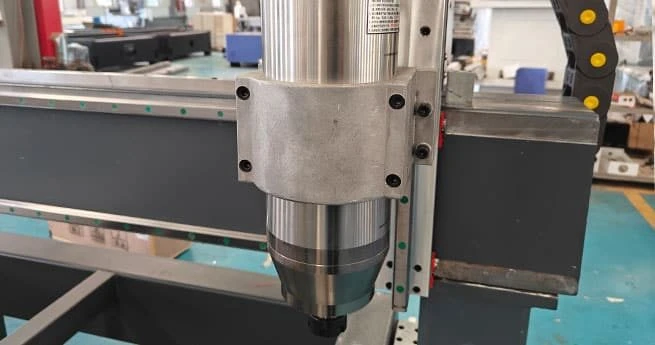In today's globalized world, where people from different regions interact, work, and travel, measurement conversion has become an essential part of daily life. Whether you're a student working on a science project, a traveler navigating through different countries, or someone dealing with international business transactions, a Measurement Converter can make your life much easier. This post explores everything you need to know about measurement converters, how they work, and how they can help you in various scenarios.
What is a Measurement Converter?
A Measurement Converter is a tool that allows users to convert one unit of measurement into another. Units of measurement can vary based on geographical location, industry standards, or even personal preference. Measurement converters simplify the process of switching between different units of measurement, saving time and ensuring accuracy.
For example, if you're in the United States and want to know how many kilometers are in 10 miles, a measurement converter can instantly give you the answer: approximately 16.09 kilometers. Similarly, if you're baking a recipe from the UK that lists ingredients in grams and you only have measuring cups, a converter can help you switch to your preferred unit.
Types of Measurements You Can Convert
There are various types of measurements that require conversion, ranging from length and mass to temperature and volume. Below is a breakdown of the most common categories and how measurement converters help in each one:
1. Length Conversion
Length conversion is one of the most frequently used types of measurement conversion. Different regions use different systems of measurement. For example:
- The Imperial System (used in the United States) typically uses feet, inches, and miles.
- The Metric System (used in most other countries) uses meters, kilometers, and centimeters.
Measurement converters help you convert between these units quickly. For instance, to convert 5 miles to kilometers, a converter would calculate that 5 miles is approximately 8.05 kilometers.
2. Weight (Mass) Conversion
Another common conversion is between different units of mass or weight. Common units include pounds, ounces, kilograms, and grams. For example, if you're purchasing fruit from a vendor who uses kilograms but you only know pounds, a measurement converter can instantly tell you how many pounds are in a certain number of kilograms.
- 1 kilogram = 2.20462 pounds
- 1 pound = 16 ounces
3. Temperature Conversion
Temperature is usually measured in Celsius or Fahrenheit, depending on where you are in the world. A measurement converter can easily convert a temperature from one scale to another. For example:
- 0°C = 32°F (Freezing point of water)
- 100°C = 212°F (Boiling point of water)
Converting between Celsius and Fahrenheit is a simple process with the help of a converter, and it can be especially useful when traveling between countries with different climate measurement systems.
4. Volume Conversion
Volume conversion is essential in many fields, especially in cooking and scientific research. Units of volume include liters, milliliters, gallons, pints, and cups. For example, a recipe written in the UK may list quantities in pints, but if you're from the US, you're likely more familiar with cups and fluid ounces.
- 1 liter = 4.22675 cups (US)
- 1 gallon (US) = 3.78541 liters
5. Time Conversion
Time conversion includes converting between various units such as seconds, minutes, hours, days, weeks, and years. You might need to convert time zones when traveling or understanding how long a certain event lasts.
For example, if you need to convert hours to minutes:
- 1 hour = 60 minutes
- 1 minute = 60 seconds
6. Speed Conversion
When dealing with speed, you might need to convert between kilometers per hour (km/h), miles per hour (mph), or meters per second (m/s). Whether you're driving in another country or reading scientific data, a speed converter can simplify the process.
For instance:
- 60 mph ≈ 96.56 km/h
- 100 m/s ≈ 360 km/h
7. Area and Surface Conversion
When working on construction projects or real estate, you often need to convert between square feet, square meters, and acres. Here are some conversions for area:
- 1 square foot = 0.092903 square meters
- 1 acre = 43,560 square feet
Why Use a Measurement Converter?
There are several benefits to using a Measurement Converter, whether it's a simple online tool, a mobile app, or a physical conversion chart:
1. Accuracy and Precision
Measurement converters ensure you get the correct conversion without manual calculations, reducing the risk of errors. This is crucial in situations where even small discrepancies can lead to large consequences, such as in scientific research or engineering.
2. Convenience
Rather than using complex formulas to manually convert between units, a measurement converter allows for quick and easy conversions. This is particularly useful when you need to convert units frequently or in real-time.
3. Universal Usage
If you work with international clients, suppliers, or partners, using a converter ensures you can easily understand and communicate measurements across different systems, improving collaboration.
4. Time-Saving
Converters save you time by quickly providing the correct conversions without the need to look up conversion tables or calculate values manually.
How to Use a Measurement Converter?
Using a Measurement Converter is typically very simple. Whether you're using a website or a mobile app, the process is often straightforward:
- Select the Measurement Type: Choose the category of conversion, such as length, weight, volume, or temperature.
- Enter the Value: Input the number you want to convert.
- Choose the Units: Select the units of measurement you’re starting with and the units you want to convert to.
- Get the Conversion: The converter will instantly provide the correct result.
Many online converters, like the one available at Measurement Converter, offer a user-friendly interface where you can perform conversions for multiple measurement types.
Popular Online Measurement Converters
There are a variety of online and mobile tools designed to help with measurement conversions. Some popular options include:
- UnitXSwap: This website offers an easy-to-use platform for converting measurements in various categories. With just a few clicks, you can switch between different units, whether it’s for everyday tasks or more specialized scientific needs.
- Google: Google provides a simple unit converter. Just type the conversion you need (e.g., "5 miles to kilometers") in the search bar, and it will give you an instant result.
- Metric Conversions: This website offers a variety of conversion tools for various measurement types and can be accessed globally.
Common FAQs About Measurement Converters
1. What is the difference between the metric system and the imperial system?
The metric system is used globally and includes units such as meters, kilograms, and liters. The imperial system, used primarily in the United States, uses units like feet, pounds, and gallons. Converting between these two systems often requires a measurement converter.
2. Are measurement converters accurate?
Yes, online and app-based measurement converters are typically very accurate. They use standardized formulas and constants to ensure the conversions are correct. However, always ensure that you're using a reputable converter for important or professional tasks.
3. Can I use a measurement converter for cooking recipes?
Yes, a measurement converter can help you easily convert between different cooking measurements. For example, you can convert between teaspoons, tablespoons, cups, and milliliters with ease.
4. Do I need an internet connection to use a measurement converter?
Some measurement converters, especially those available as mobile apps, may work offline once downloaded. However, most online converters require an internet connection to access the website and get conversions.
5. How do I convert temperature between Celsius and Fahrenheit?
To convert from Celsius to Fahrenheit, use the formula:
F = (C × 9/5) + 32
For example, 25°C = (25 × 9/5) + 32 = 77°F.
To convert from Fahrenheit to Celsius, use the formula:
C = (F - 32) × 5/9
Conclusion
Whether you’re a traveler, a student, or someone simply looking to convert measurements in everyday life, a Measurement Converter is an indispensable tool that can make your tasks much easier. By understanding the different types of measurements and how to convert between them, you’ll be able to tackle a wide variety of situations with confidence and accuracy.
For your convenience, you can explore an easy-to-use Measurement Converter on UnitXSwap to help with all your conversion needs.


